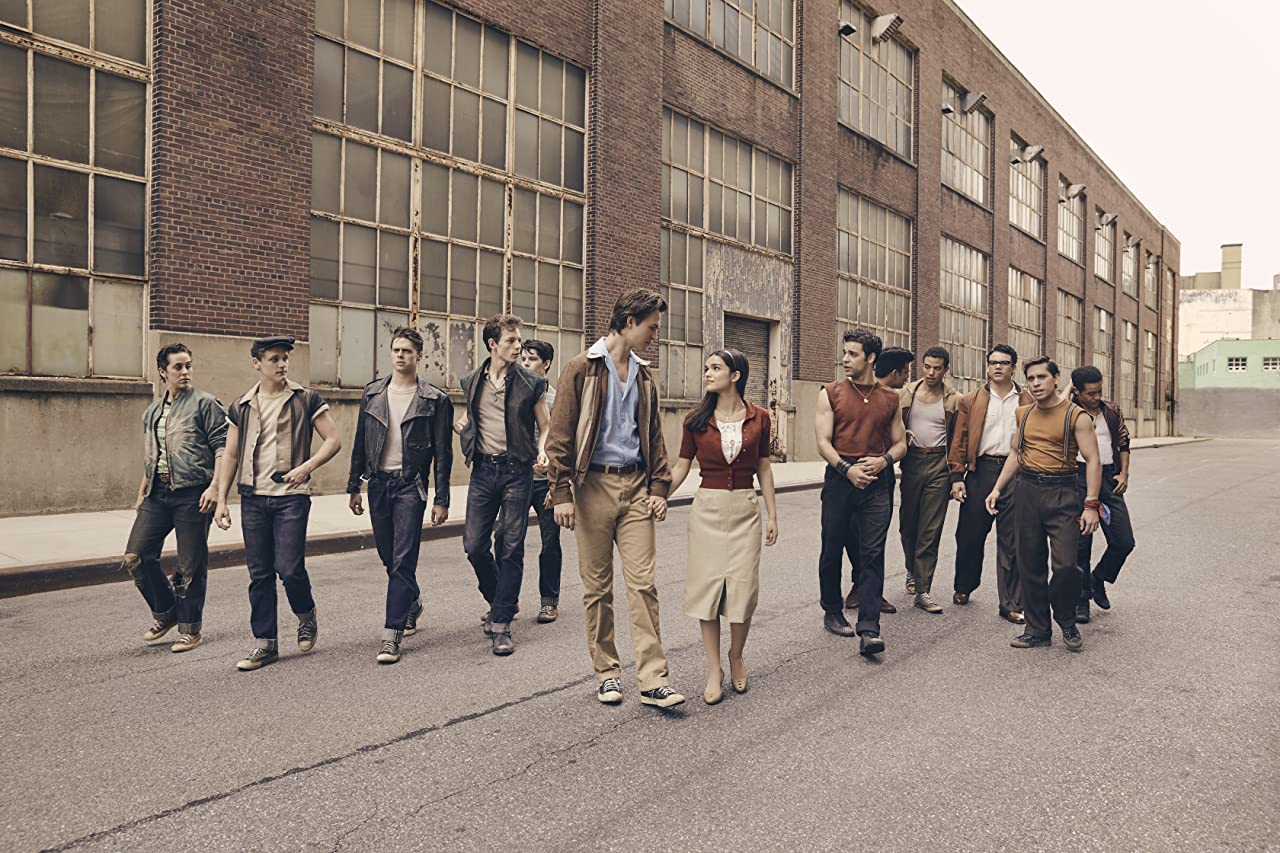West Side Story (2021): A Movie Review
Spielberg's remake doesn't hold a candle to the original, but the qualities of the story shine through.

Steven Spielberg is an institution. His work can be seen less as the filmography of a director, and more as a kind of cinema. Many of his movies feel like part of the fabric of cinema itself.
His style lends itself to being defined as a kind of cinematic water mark. A reference point against which other movies are measured and compared. Partly, this is due to his rejection of artsiness in favour of clarity and flawless production standards. Everything in a Spielberg film feels arranged to make a crystal clear window through which cinematic worlds can be shown, and important and heartfelt stories can be told, in an entertaining fashion.
He has taken on so many shades of cinema by this point, participating in almost every genre, style, and tone, that to think of him as a director without a singular personal style is forgivable. In any case, I tend to think of Spielberg first as a kind of purveyor of transcendent pulp fiction. Operating in the same realm as Stephen King as a storyteller, telling stories with both simple and sensational qualities in a universal and un-snobbish way. Close Encounters of The Third Kind, Jaws, Raiders of the Lost Ark, E.T., and Jurassic Park capture this part of his essence. Films like this are all about the magic of cinema, in a sense that is bigger than the individual. He puts no “directorial ego” into his work.
Something he has not taken on until now is the musical. He likes to do things big, so the question is: why not remake the most critically-acclaimed musical of all time?
The obvious answer is that remaking West Side Story (1961) is a task doomed before it begins. Living up to the original is a task simply too big, even for Spielberg, the naysayers would declare. And the naysayers would be right. West Side Story (2021) doesn’t come close to being as good as the original. The comparison, which I found myself making quite a bit during the first half of the film, is unfavourable.
Robert Wise’s original belongs in “Top 10 GOAT” lists, so it’s a safe bet that any remake is not going to one-up it. The only example I can think of where something like that happened (at least to my mind) is when Wages of Fear (1953) was remade by William Friedkin as Sorcerer (1977), which I contentiously think surpasses the (amazing, all-time worthy) original. It’s possible, but unlikely to happen again.
Once I settled in, though, at some point past the midway point of Spielberg’s West Side Story I stopped caring or thinking about the comparisons. His impeccable production values had succeeded in constructing a cinematic window through which West Side Story, the story, was being retold in a way that swept me up. By the end I was convinced: it’s a story that merits being retold to new audiences that, as much as we can beseech them to “watch the awesome original, dammit!”will never get to know it unless given in the form of a sparkling new movie.
If anyone is going to take on a remake of West Side Story, it should be Spielberg — the director who thrives on doing things big, but has no detectable ego. Someone who can get out the way and just get the thing up on the silver screen again in a spectacular fashion. Spielberg shares some common ground with Robert Wise, who participated in so many genres and styles he got a reputation as a director with no single, personal style. This makes for an interesting thread of commonality between the two.
You could also make the argument that, since West Side Story comes from the theatre, where different casts and productions perform it each year, maybe something of the same improvisational, free-wheeling spirit should carry over to its movie forms. Unlike stage productions, the original will remain captured on celluloid in its exact form, and will likely find many new viewers who go see Spielberg’s version then search for the original to watch at home. I don’t apply this argument to all (or really, many) modern remakes, but this is probably an exception.
Spielberg has finally done a musical, and after processing and pondering it for a while (AKA “procrastination”), I am glad he chose West Side Story.
As far as the comparisons go, the biggest contrast I detected between the original and this one is a lack of atmosphere and grit — which the original had in spades. The new one has a lighter, and by contrast blander, feel. It has less character.
Once the story gets into full swing, I found the immersion factor, coming from Spielberg’s production but also helped by some standout performances (Rachel Zegler as María, and Rita Moreno as Valentina), took over and let the qualities of the story shine through.
What makes the story of West Side Story worthy of being retold? A few things. Primarily, it is an expertly constructed story about class and race, and the corrupt power structures that bias the fates of those living within them. The cultural damage brought about by imperialism (the involvement of the United States in Puerto Rico) and corrupt authorities (racially profiling, quick to dehumanise petty criminals) are targeted and illuminated superbly, without making the movie feel overtly “political.” The story also distances itself from the gang members, rejecting macho violence through female characters who are strong-minded and nonviolent, and function as a glue in the community. I can’t think of another story that does these things as well as West Side Story.
At its heart is also a tragic love story — an interracial romance that brings out the fractures and divisions in the community. It puts together the idea of fighting and loving as two sides of the same coin, often bound together. Love is not just sweet here, but dangerous.
West Side Story embraces the campy and fabulous aspects of the musical, but it is also real. It is grounded in social realism, not escapism. That is a part of what elevates it. Within its tragic construction is also a spark hope and faith in humanity. The movie has heart, and I think is a good example of what Robert Ebert meant when he talked about cinema being an “empathy-generating machine.”
Go see it where it’s still playing. Then, if you (poor soul) haven’t seen the original, go watch that, too. Do something nice for yourself, and self-administer a double dose from the empathy-generating machine.
Setting unfavourable comparisons aside, seeing Spielberg’s West Side Story on the big screen made me fall in love with the story all over again.
James Lanternman writes movie reviews, essays, and moonlit thoughts. You can reach him at [email protected].
Previously… Notes on Thinking Green
